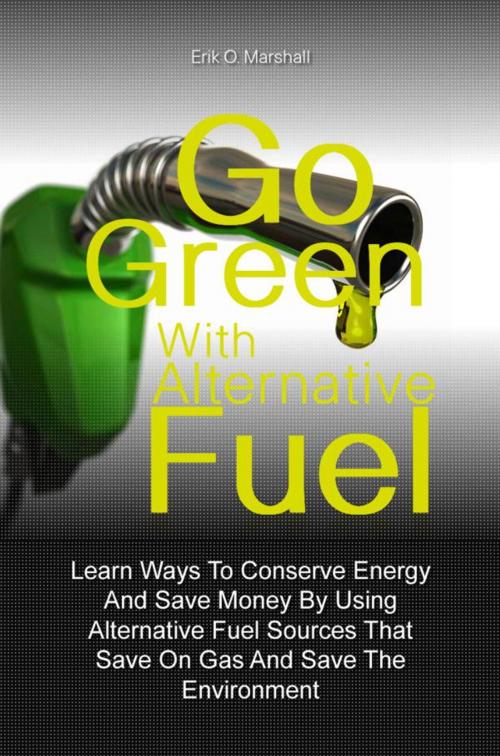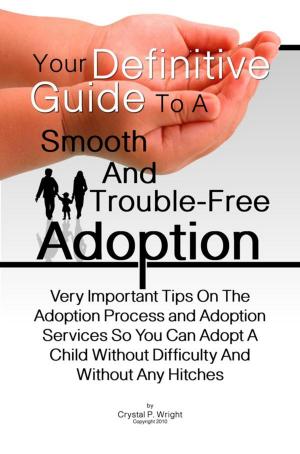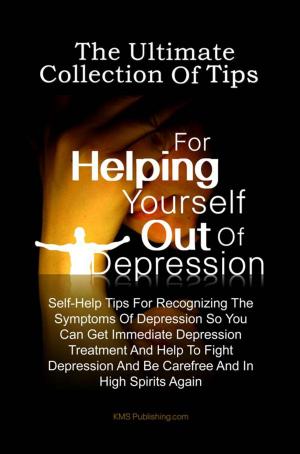Go Green With Alternative Fuel
Learn Ways To Conserve Energy And Save Money By Using Alternative Fuel Sources That Save On Gas And Save The Environment
Nonfiction, Science & Nature, Technology, Environmental, Power Resources| Author: | Erik O. Marshall | ISBN: | 1230000021329 |
| Publisher: | KMS Publishing | Publication: | October 3, 2012 |
| Imprint: | Language: | English |
| Author: | Erik O. Marshall |
| ISBN: | 1230000021329 |
| Publisher: | KMS Publishing |
| Publication: | October 3, 2012 |
| Imprint: | |
| Language: | English |
What is the big deal about going green? How can it help save the environment if I start using alternative fuel?
The fact is that by using alternative fuel you can greatly reduce the impact of harmful exhaust emissions to the atmosphere. In so doing, you lessen the effects of climate change and its threat of havoc upon our planet. That is perhaps the number one benefit of using alternative fuel instead of the more commonly used petroleum fuel.
Alternative fuels are manufactured domestically. They became popular as a result of the government’s campaign to promote the use of other non-petroleum based fuels as a way to reduce the nation’s dependency on imported fuel sources.
The United States alone is responsible for 27% of harmful exhaust emissions such as carbon dioxide, carbon monoxide, nitrogen oxides, sulfur and more, all of which cause damage to the earth by means of its heat-trapping effect. Alternative fuels burn cleaner by more than 90% as compared to regular petroleum thereby lessening this heat-trapping outcome.
Some widely-used forms of alternative fuels are biodiesel, natural gas, ethanol, propane, hydrogen, coal, and also renewable sources such as solar and wind energy. However, a good point to keep in mind: it is not so much what we use but how we use it. Are we taking for granted that fuel or energy will never run out and are being wasteful? When we lessen the amount of any form of fuel we use, we can prevent the burning of that remaining 10%. Now, that’s absolutely going green!
What is the big deal about going green? How can it help save the environment if I start using alternative fuel?
The fact is that by using alternative fuel you can greatly reduce the impact of harmful exhaust emissions to the atmosphere. In so doing, you lessen the effects of climate change and its threat of havoc upon our planet. That is perhaps the number one benefit of using alternative fuel instead of the more commonly used petroleum fuel.
Alternative fuels are manufactured domestically. They became popular as a result of the government’s campaign to promote the use of other non-petroleum based fuels as a way to reduce the nation’s dependency on imported fuel sources.
The United States alone is responsible for 27% of harmful exhaust emissions such as carbon dioxide, carbon monoxide, nitrogen oxides, sulfur and more, all of which cause damage to the earth by means of its heat-trapping effect. Alternative fuels burn cleaner by more than 90% as compared to regular petroleum thereby lessening this heat-trapping outcome.
Some widely-used forms of alternative fuels are biodiesel, natural gas, ethanol, propane, hydrogen, coal, and also renewable sources such as solar and wind energy. However, a good point to keep in mind: it is not so much what we use but how we use it. Are we taking for granted that fuel or energy will never run out and are being wasteful? When we lessen the amount of any form of fuel we use, we can prevent the burning of that remaining 10%. Now, that’s absolutely going green!















